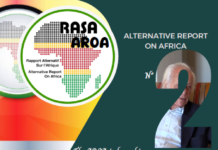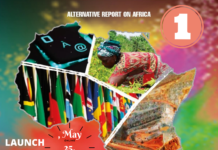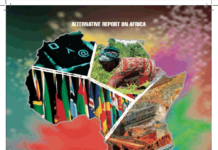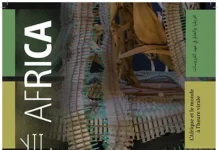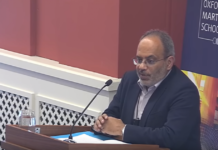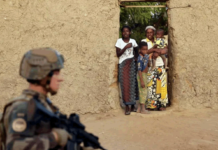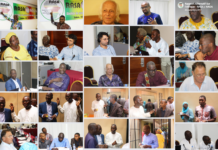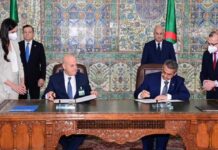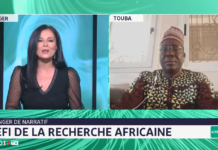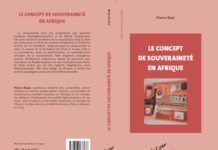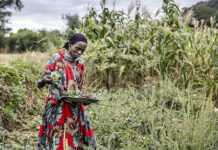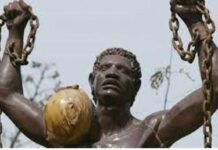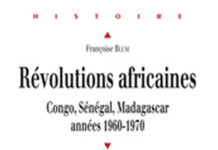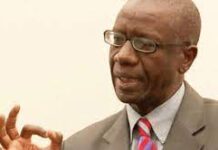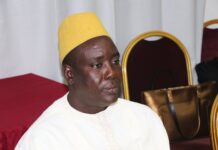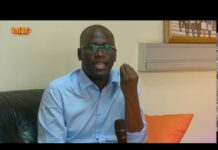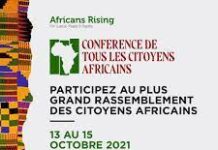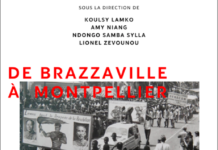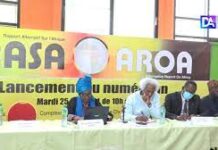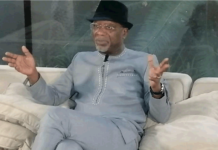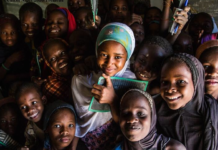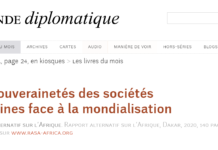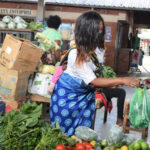How can one remain a Professor of philosophy, having drunk from the Greek sources of thought, and still retain one’s unalterable capacity to think about African wisdom? It is common knowledge that many African intellectuals, imbued with academic knowledge, are losing their African soul to foreign cultures and ways of thinking (Arabic and Western).
It is as if the appropriation of knowledge as it is defined in Western and Arab schemes had as a necessary tribute, on the part of the African intellectual, the loss of his identity. But for Mamoussé Diagne, it is rather the opposite: academic knowledge is, for the first associate professor of philosophy in Africa, only a tool to better render intelligible the realities of his people.
The author of the Critique of Oral Reason « Discursive Practices in Black Africa » (Karthala 2005) is an authentic philosopher, but deeply rooted in the traditions and cultures of his people.
The philosophical tradition, as bequeathed to us by the West, teaches us that the pre-Socratics and Socrates himself only achieved this formidable intellectual conversion by breaking with myth and tradition. But with Mamoussé Diagne, one has the impression that the logos goes the other way around by assuming traditional ways of thinking in order to make them not only intelligible, but also estimable.
The oral tradition, the wisdoms it carries, its ingenious procedures of oral writing, etc., are, with Mamoussé Diagne, rehabilitated and credited with a rationality hitherto ignored. Our philosopher is thus between two rationalities or more exactly between two moments of the same rationality. He has never renounced the moral and intellectual values which have forged his personality and which constitute the fabric of his very being.
This is perhaps why his investigations on orality are consubstantially linked to his practice: he knows, with elegance and depth, how to make the memory retain historical contents that whole volumes would struggle to do. The characteristic of orality is that it brings to life the events it recounts; it gives life to the past by embedding it in the present of the narrator.
The intonation, the changes of mood in the speech, the gestures that accompany and signify at the same time the word make the epic and the lyric as well as the values that they carry transpire in the narrative. The epic generally transcends history, not only because it refers to the supernatural, but because it enlivens and ennobles it.
Staging and dramatization are part of the archival arsenal available to orality, and we find them in the intellectual and academic postures of our philosopher. However, his proven knowledge of the procedures and the heuristic value of orality does not prevent him from circumscribing its limits.
His position on the problematic of a specific African philosophy largely attests to his imperturbable quest for objectivity. His thesis on this question, as expressed in De la philosophie et des philosophes en Afrique noire (Karthala 2006), is unequivocal: the political, economic and psychological conditions that favored the birth of philosophy in ancient Greece around the 6th century BC did not exist in Africa.
In any case, Professor Diagne points out, the « Greek miracle » that saw philosophy blossom did not always exist and the Greeks themselves did something else before philosophizing. To recognize that orality, the demands of secrecy that confine knowledge within the limits of initiation in Black Africa, and the political and economic conditions of a non-open society are incompatible with the deployment of the philosophical Logos, is not to do an insult to Africa. It is to say that there is not in Mamoussé a fetishism on the value of the African traditional ways of thinking. Although he is in love with African wisdoms, Mamoussé Diagne, in his teachings as well as in his work, has always made it his duty to observe the critical distance that is the essence of the philosopher.
If it is true that philosophy is above all an enterprise of demythification and demythologization, how can one engage the question of a philosophy without adopting Towa’s statement, which has the value of a methodological precept: « Philosophy only begins with the decision to submit the philosophical and cultural heritage to an uncompromising critique »? If philosophy is etymologically defined as the love or study of wisdom, the Senegalese philosopher is in search of a double wisdom or, in any case, of two paths to wisdom.
While it is generally thought that orality is a handicap to discursive thought, Mamoussé explains that it contains logical, universal processes, capable of conveying complex thoughts. The dispossession of oneself in the encounter with others is not a fatality: this is what we learn from the life and work of Mamoussé Diagne.
A convinced Pan-Africanist, a humanist, and an outstanding teacher, the thinker of the discursive practices inherent to orality in Black Africa is one of the emblematic figures of the philosophy department. An icon among icons, he is nevertheless of a simplicity rarely equaled. The teacher: it is difficult to achieve unanimity among the students, especially those in philosophy, but Mamoussé Diagne is probably the exception that proves the rule. The philosophy students almost « contemplate » him: a pedagogue down to his diction and gestures, he magnetizes his audience and weaves a relationship of trust and esteem with the student that transcends the rigor of evaluations and the hazards of success.
A Mamoussé Diagne course is so precious that no student would venture to skip it. The man who dissects and teaches Machiavelli’s Prince as no one else does is the synthesis of the teachings that make the Department of Philosophy one of the most highly rated at Cheikh Anta Diop University. How can one not fall under the spell of a professor who is as elegant in his words as in his presence, in his knowledge as in his ethics?
Mamoussé Diagne, in a classroom or in an amphitheater, is a key that opens the most hermetic philosophies. This means that his pedagogy is an art that produces both beauty and knowledge in the same breath. For each generation of philosophy students, Mamoussé Diagne is a Professor whose courses, from the first year to the Master’s degree, are a real propaedeutic to reflection.
Mamoussé is the embodiment of the answer to the question « how to teach the most complex contents without boring? It has been known for a long time that the pedagogical relationship is both emotional and intellectual. This is why the great pedagogues know how to seduce learners without making them wonder. With Mamoussé Diagne, the act of teaching is above all love: love or passion for philosophy (he is the very prototype of the philosopher who prefers to discuss all day rather than maintain his body), love of his students and love of his work.
The man: The students obviously give it back to him well, because his course is very often punctuated by applause that certainly escapes their authors, who are undoubtedly caught in the ecstasy of a magnetizing knowledge and know-how. All the professors of philosophy of his time are brilliant, even excellent, but three things make his work special.
The first is that the type of relationship that binds him to the students goes beyond simple pedagogy, because profoundly humanist, Mamoussé does not hesitate to transform himself into a social assistant at times.
The second thing is that with him, the student is constantly in the same position as the disciples of Socrates facing the father of philosophy. If he doesn’t do maieutics in class, he often achieves the same result: to start from the difficulties or what the student doesn’t understand to encourage him to conquer science, by means of questions and suggestions that make him think. There are almost no incongruous or stupid questions in his course, which has the advantage of putting the students in a state of confidence conducive to the effort of reflection.
The third is his modesty, which explains his accessibility. He has the patience and modesty required to understand the difficulties that his students face in order to transform their ignorance into a mine of ideas to be turned into bricks in the construction of knowledge. For the university community, Mamoussé Diagne is one of the most respected professors of the University of Dakar.
His peers respect and admire him not because he was the first associate professor of philosophy, but because of his humanity and his urbanity. Mamoussé is the figure of the philosopher, that is to say, this postulant to wisdom in whom knowledge and know-how are indistinctly at the service of man. There is no rupture between the discipline he teaches, his particular way of teaching it and his way, or rather his art, of living. If it is true, as P. Hadot reminds us, that for the Greeks the choice of a philosophical school is first and foremost the choice of a school of life, for Mamoussé too one can say that philosophy is squarely a life. The sobriety which characterized the philosophers, including even those which claim themselves of Dionysos (god of the vine and the wine, therefore of the excess) is, at the Senegalese philosopher, a cult.
In his trade (always fertile) with the others, he is singled out initially by his capacity of listening. Ah what politeness! He almost never cuts anyone off and is willing to listen religiously to what some would consider platitudes that deserve no attention. What elegance! No academic, no colleague, no student has ever seen Mamoussé publicly reprimand a student, even the most controversial. He always has the words and the humor sufficient to soothe and put in confidence his interlocutors. A worthy heir to Socrates in this respect, he has integrated the principle that in a discussion positions are interchangeable and that, as the Wolof parable suggests, the truth is like a lost needle: it can be found by the young as well as the old.
The politician: Mamoussé Diagne’s work would be a kind of unfinished symphony if it did not have a political dimension. If it is true that Socrates refused to get involved in politics because it seemed incompatible with justice, Sartre was a very committed philosopher. It is the same for Mamoussé Diagne: actor of May 68, he certainly did not make politics a profession, but he devoted his leisure time to it. The otium (leisure) which is said to be the mother of philosophy is also for many intellectuals the status of politics. Politics was never considered by him as anything other than a set of recipes and ideas likely to make the city happy.
His commitment with his late friends Iba Der Thiam in the Cdp/Garab-gui, Souleymane Loum, Falaye Noël Diop, Ibrahima Lyra Diop, and Thierno Lô, Alassane Ba, Ibrahima Fall, Youssou Sow etc. testifies to his state of mind in this field and his very noble conception of politics. For, as Plato taught, politics without Diké (justice) and Aidôs (reverence, pity, honor) would be the worst human enterprise. When one theorizes the values of Jom, Ngor, etc., one cannot engage lightly in politics; and this is what Mamoussé understood. His lightning passage at the Ministry of Higher Education did not leave him any feeling of bitterness.
On the contrary, he has, through this station, rendered service to his Nation in honor, dignity and justice. It is not in a few lines that we will succeed in paying tribute to an icon like Mamoussé Diagne. The immensity of the man is such that one could only awkwardly and mediocrely pay him the tribute he deserves in several volumes. The weakness or the sin of our current society is that it is not programmed to grant its elites (especially intellectuals) the place that should be theirs. It is necessary to recall the duty of memory and the duty of recognition which is incumbent on all of us towards those who have given the best of their lives for a Senegal which shines in all fields.
How can we understand that intellectuals like Pathé Diagne, Souleymane Bachir Diagne, Souleymane Niang, Mary Teuw Niane, Souleymane Mboup, to name but a few, are not celebrated in this country? How can we ensure that, during their lifetime, these heroes will know that the nation is fully aware of the sacrifice they have made in their field? How to understand that there are no days dedicated to these illustrious professors at Cheikh Anta Diop University? Days in the form of an annual symposium, banquet, etc. around their work would at least allow students to know that their University has been and should remain a true temple of knowledge. The first consumers of the works of Senegalese professors must be the students, because the opening in the world could not be fruitful without a true rooting.


